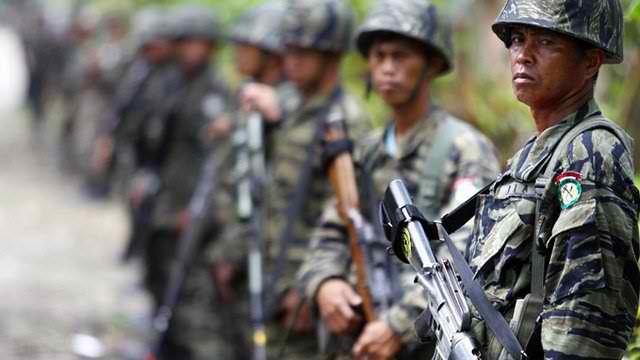
HUGE PRIZE. One of the proponents of the Scottish devolution says the Philippine government should grab the opportunity of resolving conflict in a democratic way.
The possibility of the non-passage of the Bangsamoro Basic Law (BBL) is “catastrophic” and would be a “slap t the face” to the leaders of the Moro Islamic Liberation Front (MILF), Lord Jack McConnell said on October 8.
“Failure in
passing the BBL is a slap in the face after everything they've conceded to and
the willingness they've have shown for this to work,” he said.
In a Rappler Talk,
the member of the House of Lords in the United
Kingdom explained how the proposed law is a “huge prize”
in itself not just for Muslim Mindanao but to the whole Philippines
“I think everyone
here in Manila
“To throw away
that opportunity in a world where violent extremism is happening elsewhere
would be catastrophic,” he added.
“I know there are
questions to be answered but it's a massive opportunity for the country as a
whole to move on from that terrible violence from the past,” he said.
A product of
negotiations spanning decades between the government and the MILF, the fate of
the bill is in limbo as controversies surround it following the clash between
rebels and elite policemen in January. The new deadline set by the Congress for
its passage is December 16. (READ: Pass Bangsamoro Basic Law before APEC, Not December)
Signal to the
world
McConnel, the
First Minister of Scotland from 2001 to 2007 and a proponent of the Scottish
devolution, emphasized that the passage of the BBL can send an important
message to the world ridden with violence due to extremism and conflict.
“We see all kinds
of extremism in the world causing all kinds of havoc and yet here, you have a
group that are very committed to pushing for peace that shows it's possible to
find democratic solutions to these violent problems,” he said.
The leaders of
the MILF, whom he met 3 times in 2015 alone, has “behaved very maturely” and
was understanding of the consequences that followed after the death of elite
policemen.
The MILF, he
said, is very different from all the other rebel groups he met in the past.
“While they were
frustrated with the delays, they demonstrated patience and a long time
commitment no matter what,” McConnel said.
“I think the
national government should seize that as it will not only be good for the
country but also a fine example to the world,” he said.

'BEYOND USE.' The Moro Islamic Liberation Front starts the decommissioning process. File photo by Agence France-Presse
Reservations
related to the proposed Bangsamoro government are not unfounded. However, these
should not cloud the possibility of long lasting peace in the region. (READ: From Marcos to Aquino: The cost of war)
“I understand
public opinion that they are nervous about this,” he said. “But they have to
understand that there are thousands of combatants that are willing to leave
their arms in order to make this work as the situation in Muslim Mindanao is
very bad.”
The new
autonomous government can address the existing problems in the region with
solutions that are more appropriate and eventually, more effective.
“Autonomy is a
two-way thing, not just to have more rights and privilege but also huge
responsibilities,” McConnel explained. “You can also try to solve historical
problems in a way that's more appropriate for your people.”
Legislators’
responsibility
With the upcoming
2016 elections, McConnel thinks it is still vital that stakeholders “keep the
process going.”
“We're in this
critical pre-election period when politics and government are going to be
dominated by the elections,” he explained. “I really hope that the scenes in
the next few months with all the elections happening, real work is happening to
make sure it would be implemented by the next administration.”
The ball is now
on the hands of the legislators and it is their responsibility to pass a law
that stays true in the agreements of both parties – especially on the autonomy
aspect.
“This is a
serious agreement,” McConnel said. “Lawmakers have a duty to scrutinize that
and look at the details but they also have a duty to the nation to deliver on
that.
Amid the
“nervousness” of the country with the BBL, it is the duty of those in power to
make the people understand its relevance to the people of Muslim Mindanao.
“I think that the
prize is huge but I understand the nervousness and that's where the leadership
should come in,” he explained. “I think that if the international community can
keep on believing and saying we support this process, hopefully the national
leaders are also able to show this and guide their constituents.”

No comments:
Post a Comment
Note: Only a member of this blog may post a comment.